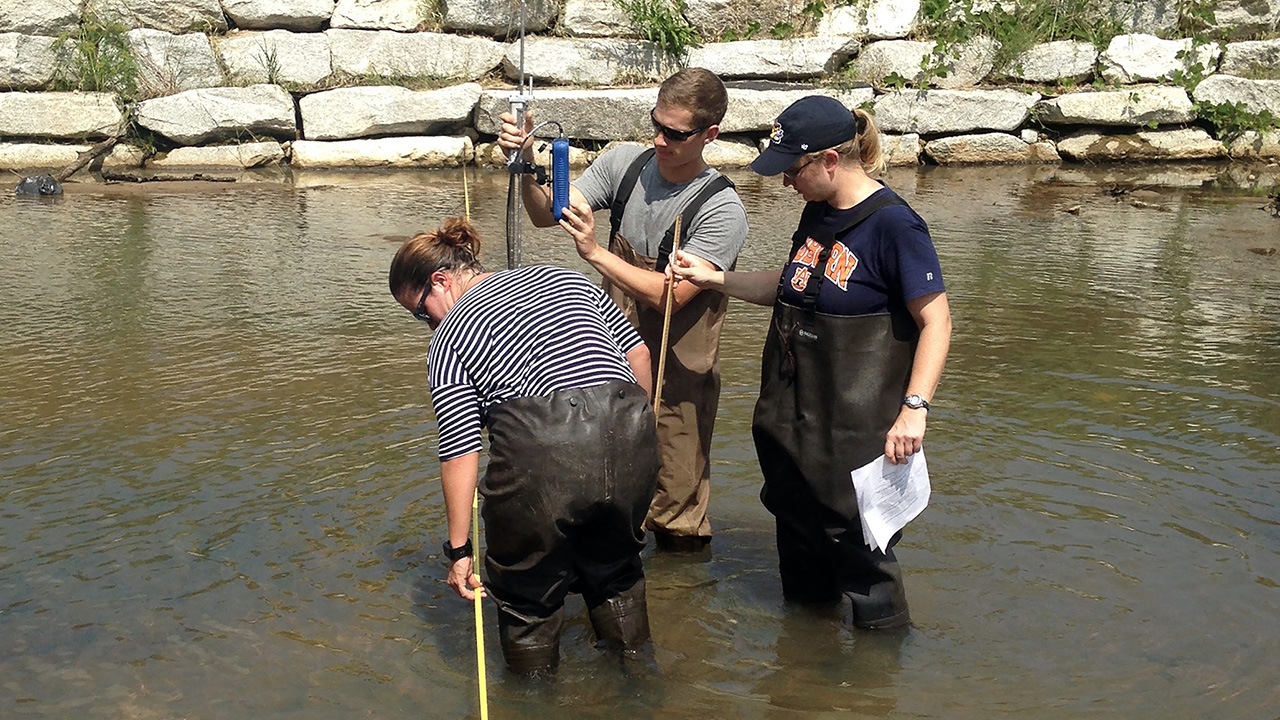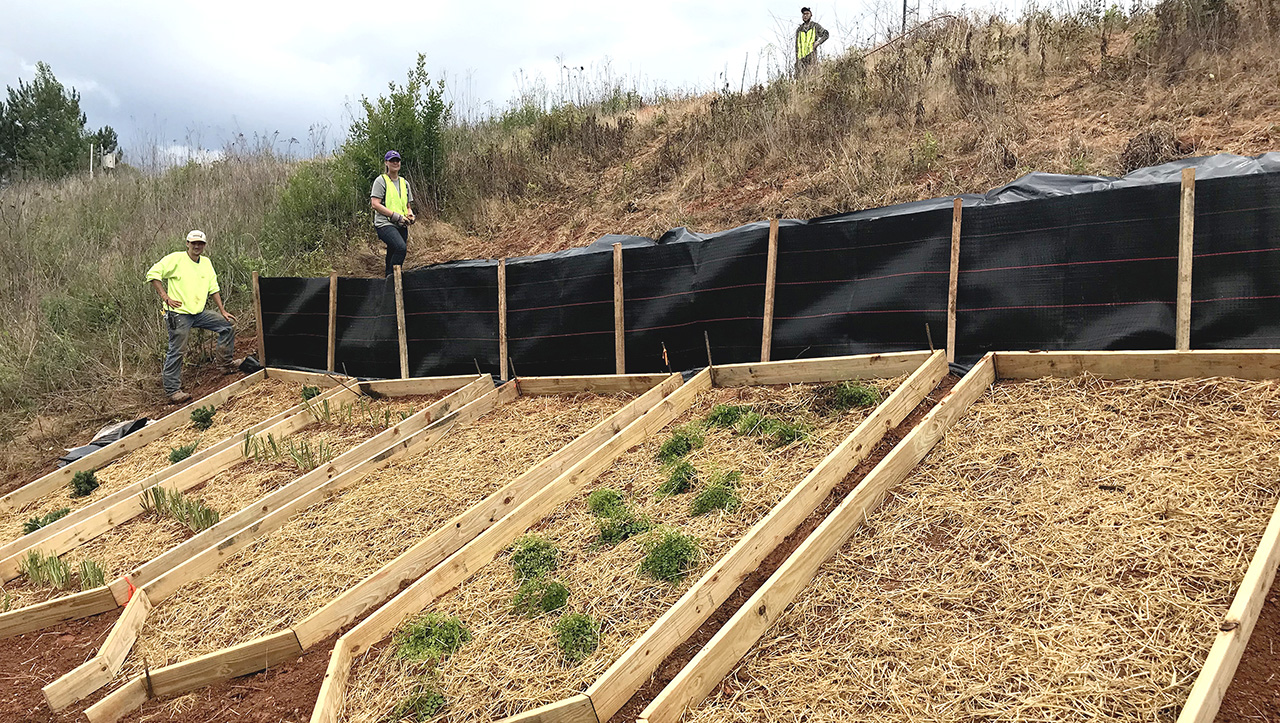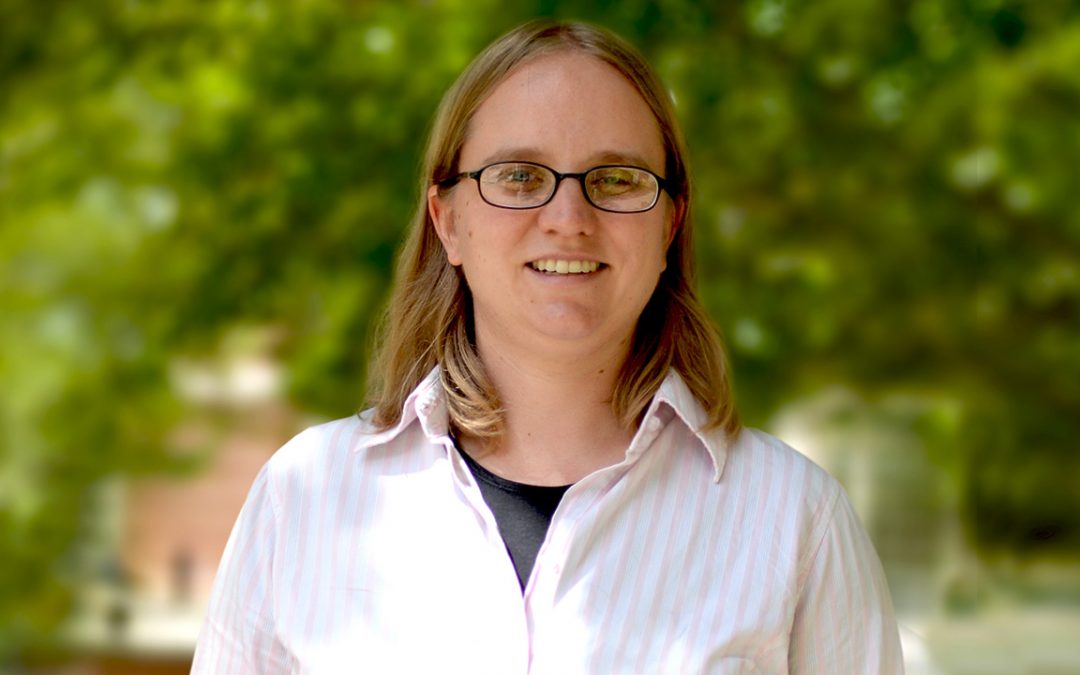We sat down with Auburn University’s Dr. Frances O’Donnell, an Assistant Professor in the Samuel Ginn College of Engineering’s Department of Civil Engineering.
Tell us about your background and current position.
I come from an interdisciplinary background, having done my bachelor’s degree in biology with a focus on plant physiology and ecology and my PhD in civil and environmental engineering. Before coming to Auburn, I worked as a postdoctoral researcher at Northern Arizona University studying how wildfires and ecosystem management in high elevation forests affects water resources for desert cities like Phoenix and Albuquerque. I was hired as an assistant professor at Auburn in 2016 as part of the Climate, Human, and Earth System Science faculty cluster. I’m based in the Department of Civil and Environmental Engineering, where I advise graduate students and teach courses in statistics, hydraulics, and hydrology.

Describe your current research activities.
I just started a USDA project on isolated wetlands, which are common in many areas of the Southeast. In agricultural regions, these wetlands may play a role in storing and processing nutrient runoff from farms, preventing pollutants like nitrate from reaching groundwater. We hypothesize that farmers could be proactive about protecting water quality in their communities by conserving or restoring small wetlands on their property with minimal losses to agricultural productivity. My collaborators and I will be collecting data and working with farmers in southwest Georgia over the next three years to gain a better understanding of these systems. Additionally, I’m doing research, partially funded by the AWRRI, on stream restoration and green infrastructure for stormwater management to improve the use of nature-based solutions to water resources issues in Alabama.

What are 2 journal articles you think everyone should read and why?
Two concepts that I find very helpful in understanding the scale and scope of environmental issues are climate stabilization wedges and planetary boundaries. These papers first introduced the concepts, which have been updated and elaborated on in more recent publications, but I think the original papers are indispensable for understanding how the challenges we face require both massive global and intensely local action. Also, for those working on water resources issues in the Southeast, Atchafalaya by John McPhee is a must read, even though it isn’t a journal article.
Authored by Rachel McGuire

